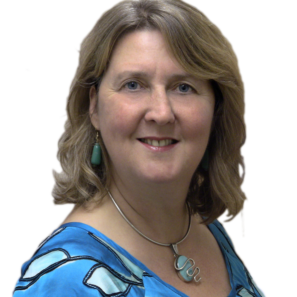Devolved regions on song with drive for digital inclusion
Local leaders can be inspired and informed by other regions when it comes to digital inclusion strategies, writes our Group Chief Executive Helen Milner.
The late music mogul and impresario Tony Wilson once said of his home city: “This is Manchester, we do things differently here.”
It is a now famous quote that may well have inspired the newly re-elected Greater Manchester Labour Mayor, Andy Burnham – whose love of the Manchester music scene is well known – when setting the city region’s strategy for digital inclusion.
Following on from last year’s pledge to make Greater Manchester a 100% digitally-enabled region, just days after his re-election Mr Burnham doubled down with a new goal; to become one of the first in the world to equip all under-25s, over-75s and disabled people with the skills, connectivity and technology to get online.
He wants to drive positive social and economic change for both people and businesses by ensuring residents can get online, access public services and develop their digital skills.
Meanwhile, newly elected Conservative Metro Mayor in the West Midlands Andy Street used his manifesto to pledge a ‘Digital Catch Up’ programme over the next two years to help boost digital skills.
Here at Good Things, this bold ambition from both Greater Manchester and the West Midlands is something we applaud – and something we want to see more of at both regional and national level, from leaders across the political spectrum.
Greater Manchester is working at pace, through the Greater Manchester Digital Inclusion Taskforce, to fix the digital divide and offer opportunity to the estimated 1.2 million adults in the region (according to Prof Simeon Yates of The University of Liverpool) who are digitally excluded in some way.
In the West Midlands, the Coalition for Digital Inclusion is bringing public, private and third sector (including Good Things) together as a collective voice to secure investment to help close the digital divide. And in the Northeast, we are working with the NE Local Enterprise Partnership to pilot approaches to embedding digital inclusion into promotion and take-up in communities of DWP’s Mid-Life MOT.
With these regions now setting an urgent rhythm for action and change, there is an opportunity for all areas across the UK to seize the moment. But they don’t have to go it alone or write their strategies from scratch.
Local leaders – like the first West Yorkshire Metro Mayor Tracy Brabin – can be inspired and informed by other regions when it comes to digital inclusion strategies that deliver real, lasting impact for their communities.
At Good Things we are working with our partner Capita to help develop a new model for achieving digital inclusion at scale, across different areas of England.
We have already been engaging with combined authorities and will keep doing so over the coming months, to help them create digital inclusion strategies and implementation plans which will help disadvantaged people access technology.
Our aim is to collate and share a best practice ‘blueprint’, from areas like Greater Manchester, the West Midlands and the Northeast with other combined and devolved authorities, providing insights on what really works when it comes to supporting local people to develop digital skills and confidence.
“Digital inclusivity must be a given if we are to fully utilise the skills, expertise and passion of people from all walks of life in rebuilding after the pandemic,” says Andy Start, CEO of Capita’s Government Services Division. “The blueprint will offer the opportunity for local government to learn and adopt best practice – making a tangible difference to those who may otherwise have been excluded from services and civic life.”
There are still 14.9 million people in the UK who have low digital engagement (Lloyds CDI 2021) – our regional leaders have the chance, right now, to be truly ambitious when it comes to achieving widespread digital inclusion.
As we continue to work in partnership towards a world where everyone benefits from digital, it’s great to see business and communities playing their part – and freshly elected leaders starting to hit the right notes on digital inclusion strategy.
- A version of this article first appeared on TheMJ.co.uk

Helen Milner OBE
Chief Executive
Helen has over 30 years experience of working in and leading organisations creating and delivering education over and about the internet. She was awarded an OBE for services to digital inclusion in the 2015 Queen’s Birthday Honours List. In 2017, she won the title of Digital Leader of the Year (UK) and was named by Computer Weekly as the 14th most influential person in UK IT in 2020. Working with British Parliament, Helen was a member of the Speaker's Commission for Digital Democracy and an Advisor on Digital Engagement to the Public Accounts Committee. She is a Board Member of FutureDotNow, a member of the Minister’s Digital Skills Partnership Board, and is on the Adult Advisory Group for MaPS (the UK’s Money and Pension Service).
